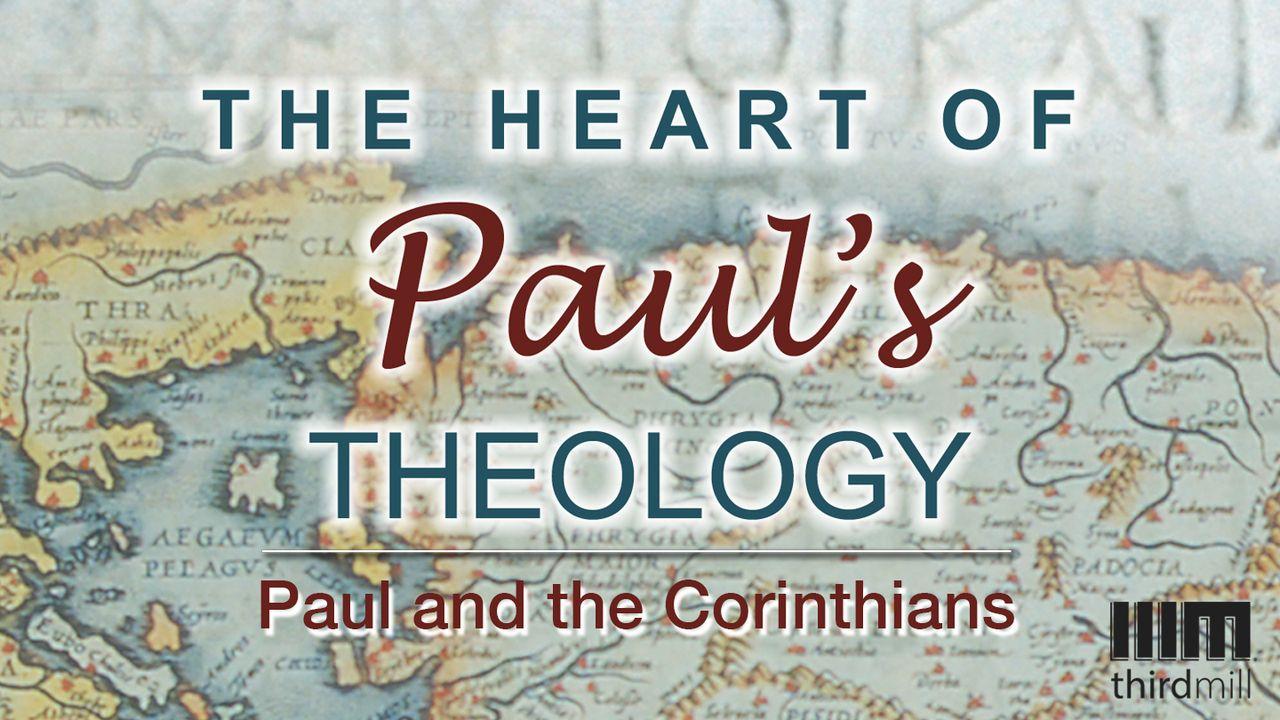The Heart Of Paul’s Theology: Paul and the CorinthiansSample

Main Body, Part II: 2 Corinthians 7:2–13:10
The third subsection consists of instructions regarding the collection for Jerusalem and spans 7:2–9:15. The Christians in Jerusalem were in great need at this point in time because of a famine in Judea. In response to this crisis, the Corinthian church, along with many other churches, had committed to sending funds to aid them. But the Corinthians had failed to finish collecting their contribution. So, Paul engaged in a lengthy discussion of the value of sacrifice for the sake of others. He appealed first to the exemplary giving of the Macedonian churches who gave even more than they could afford to give and were happy for the honor of serving in this manner. He also appealed to the example of Christ who gave up his very life that the Corinthians might enjoy abundance. Beyond this, he encouraged the Corinthians that God would bestow great blessings on them if they followed through with their prior intentions.
In 10:1–12:13 Paul returned to defending his apostleship. It would seem that the Corinthians Christians highly valued in their leaders those traits that were well respected in the world, and because Paul did not exhibit these traits, many in Corinth discounted his teaching and authority. For example, the Corinthians apparently valued trained speakers and expected their leaders to draw a salary of sorts. Because Paul did not practice professional rhetoric, and because he chose to support himself financially while in Corinth so as not to burden the church, he was considered inferior.
In response to this attitude, Paul laid out his qualifications, both to assert the legitimacy of his ministry and to rebuke the Corinthians for holding to improper values. Among other things, he mentioned his tremendous sacrifices for the sake of the gospel and his experience of viewing heaven itself. Moreover, he went on the offensive, attacking and discrediting the false apostles who spread their lies in Corinth, but who nevertheless carried earthly credentials that the Corinthians respected. Of these men, Paul wrote in 2 Corinthians 11:13:
Men like this are false apostles, deceitful workers, masquerading as Christ’s apostles.
Paul made it clear that they were unbelievers and liars, and that those who listened to them did so at their own peril.
Finally, in 12:14–13:10 Paul turned to the matter of his upcoming visit. He was now planning to come to Corinth regardless of whether or not it would mean judgment upon the church. Sadly, he feared that he would find many professed believers who had been warned about their grievous sins but who had refused to repent. Paul instructed his readers to examine themselves to make sure that they were in the faith. Consider his words in 13:5:
Test yourselves to see if you are in the faith; examine yourselves. Or do you not perceive that Jesus Christ is in you? — unless, of course, you fail the test.
Paul knew that many who professed faith did not actually trust in Christ for the salvation. So, he earnestly preached the gospel of repentance, faith, and salvation to the Corinthian church in the hopes that his opponents would become genuine followers of Jesus Christ.
About this Plan

This reading plan explores the background to Paul's letters to the Corinthians, examines the structure and content of First and Second Corinthians, and reveals his eschatology.
More
Related plans

Relentless Love: Reflections on the Book of Jonah

The Spiritual Significance of KEYS in the Bible

When God Is Silent: Finding Faith in the Waiting

How to Find Jesus for Yourself

Time

Acts 20 | Encouragement in Goodbyes

Spiritual Training: The Discipline of Fasting and Solitude

Wisdom: A Weapon of War

Two-Year Chronological Bible Reading Plan (First Year-August)
